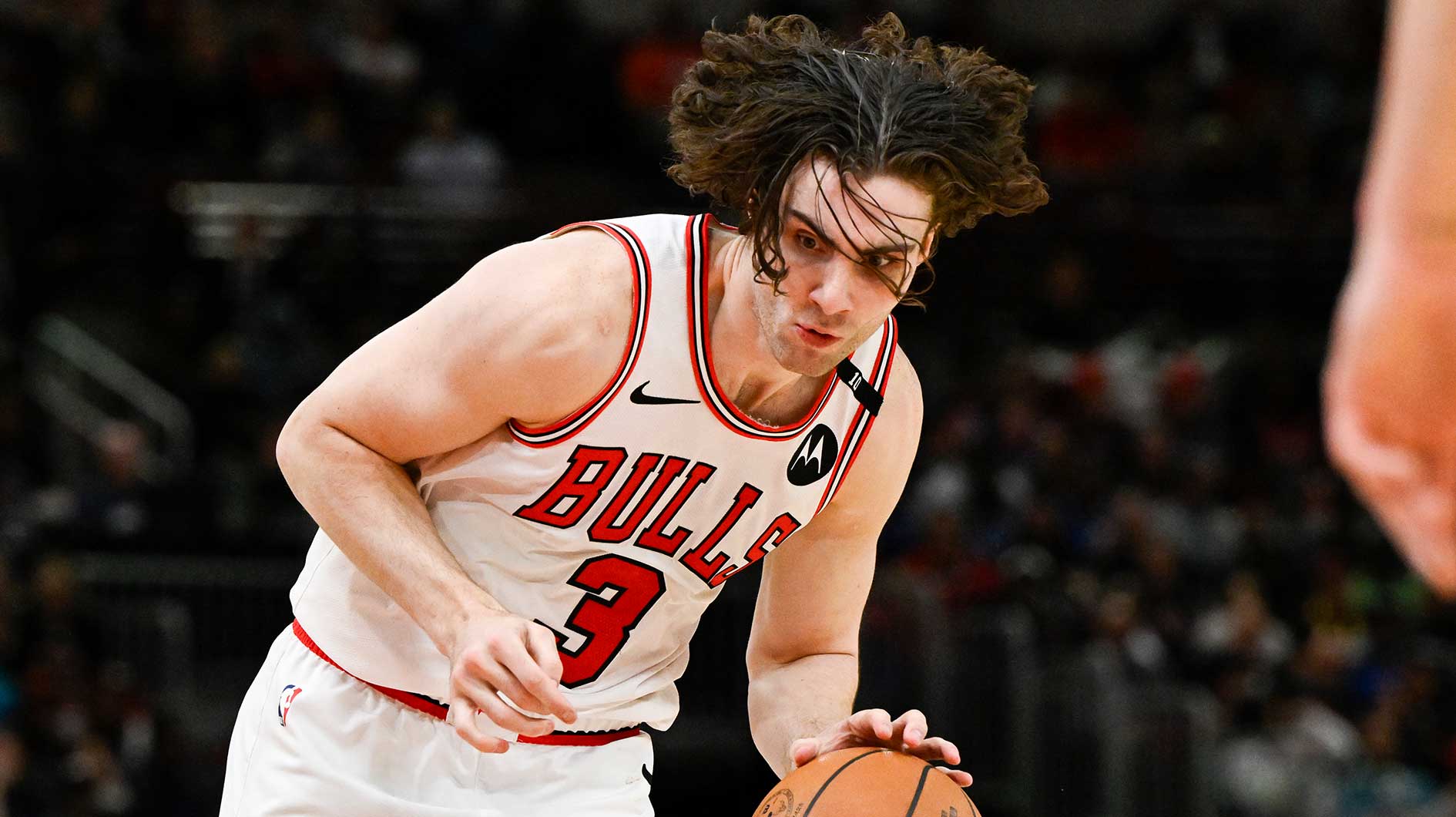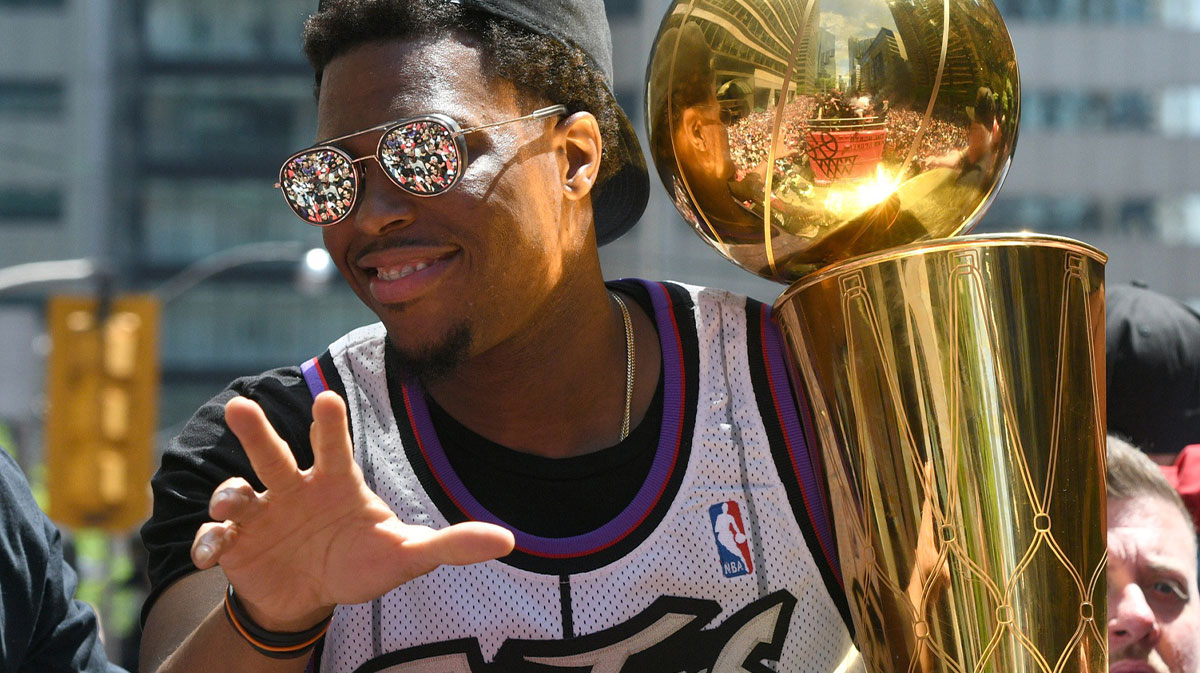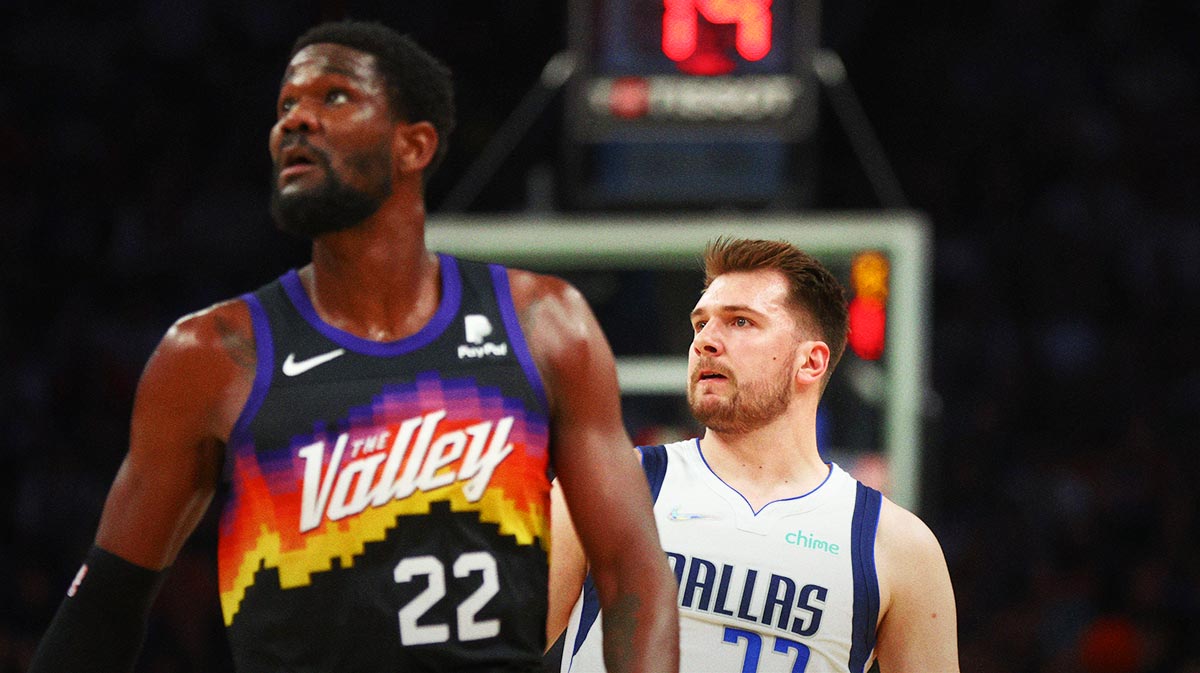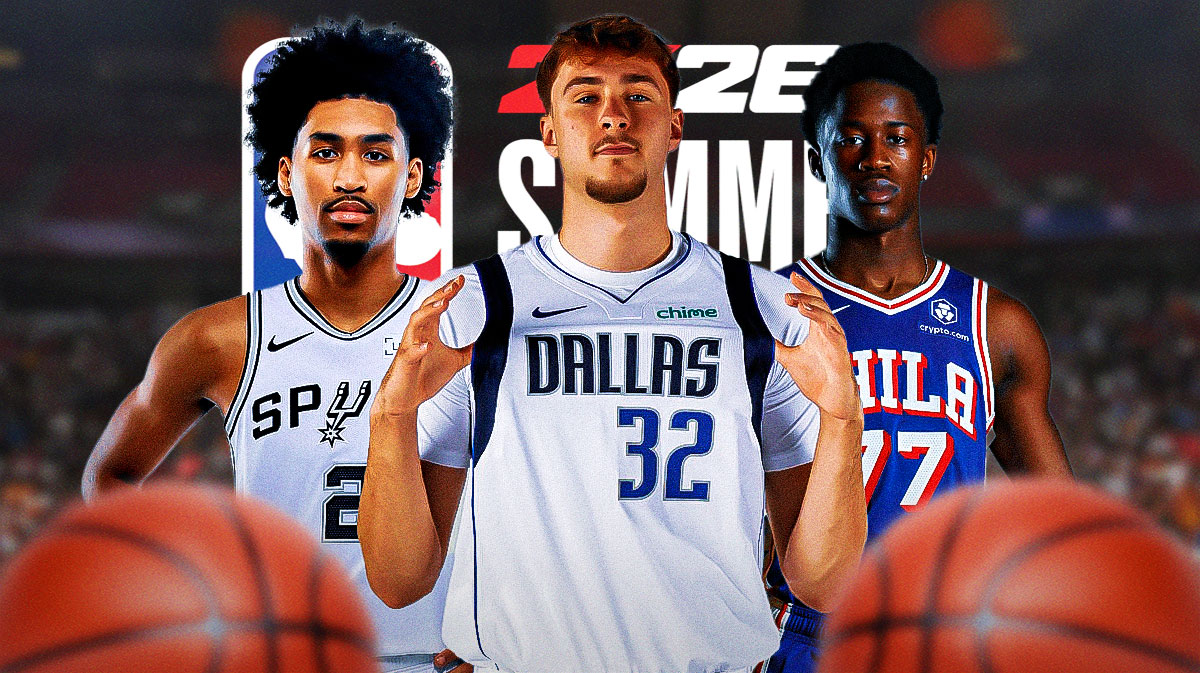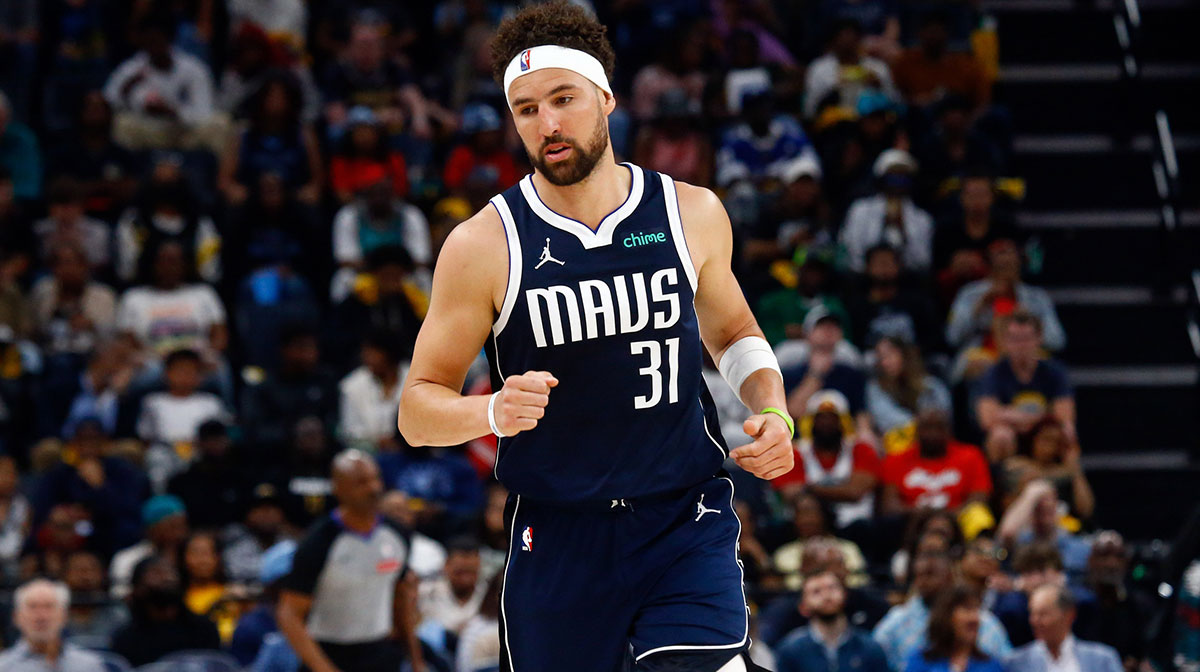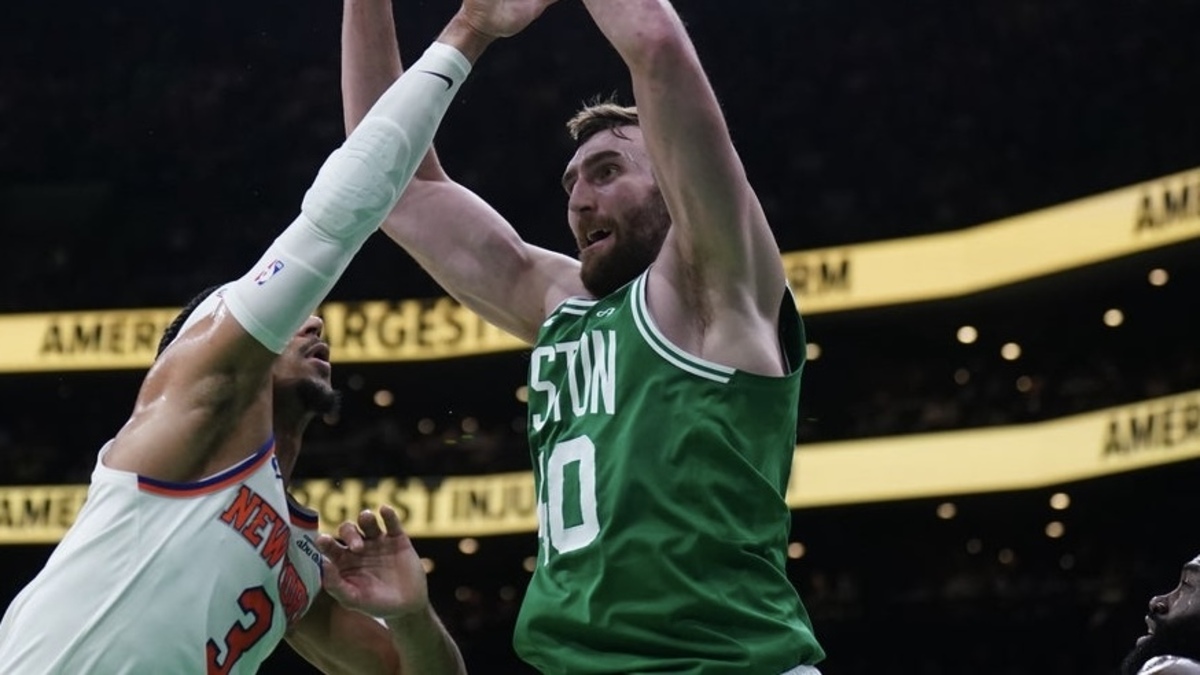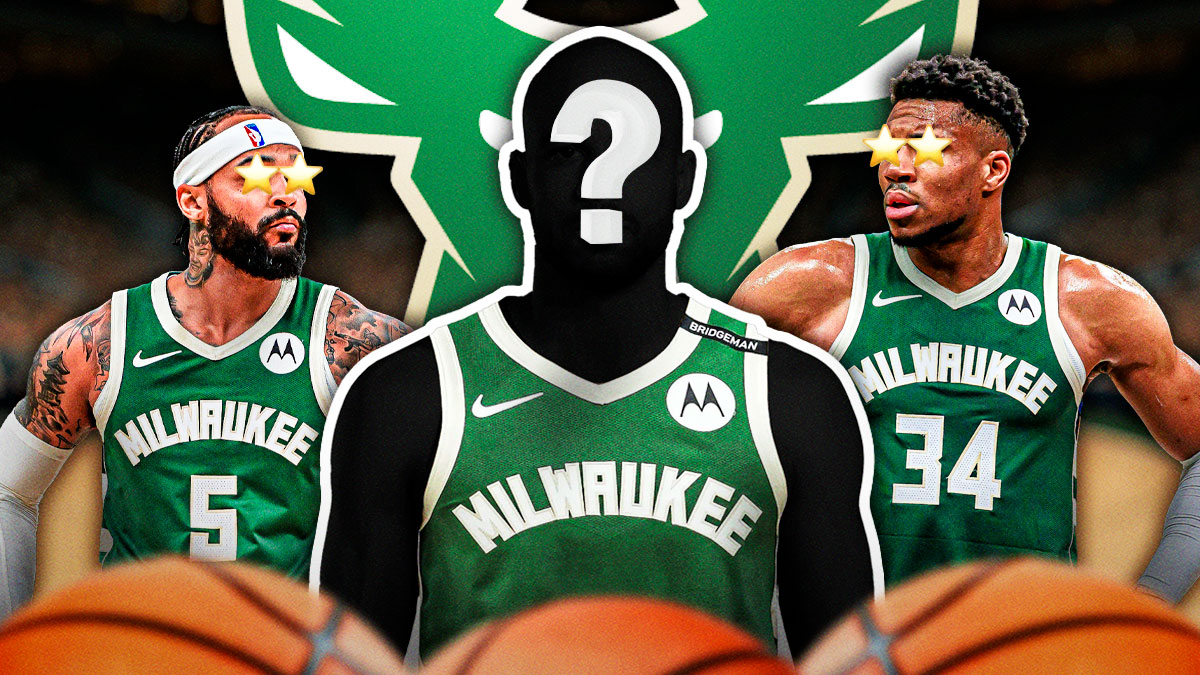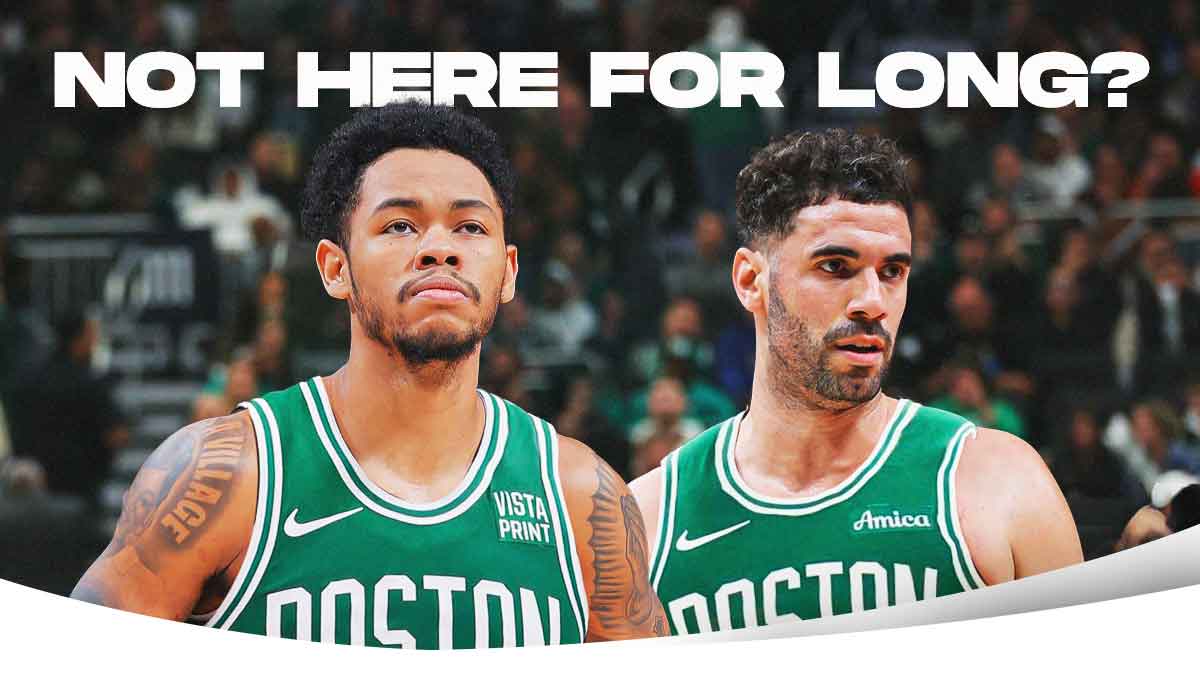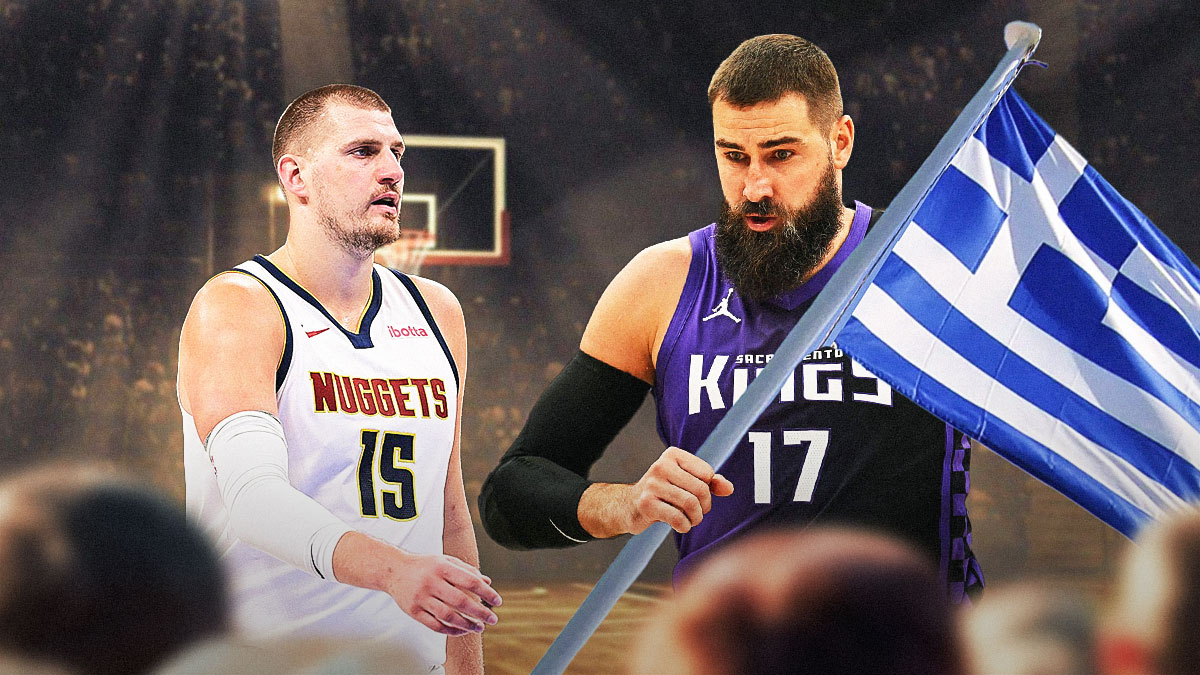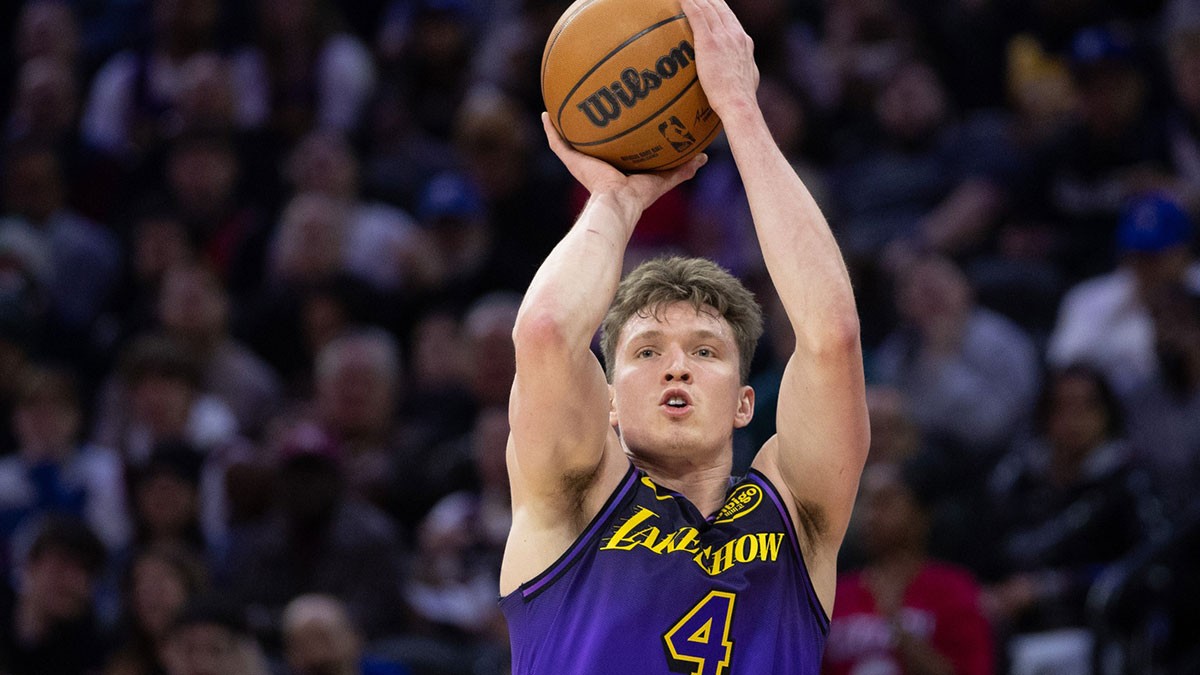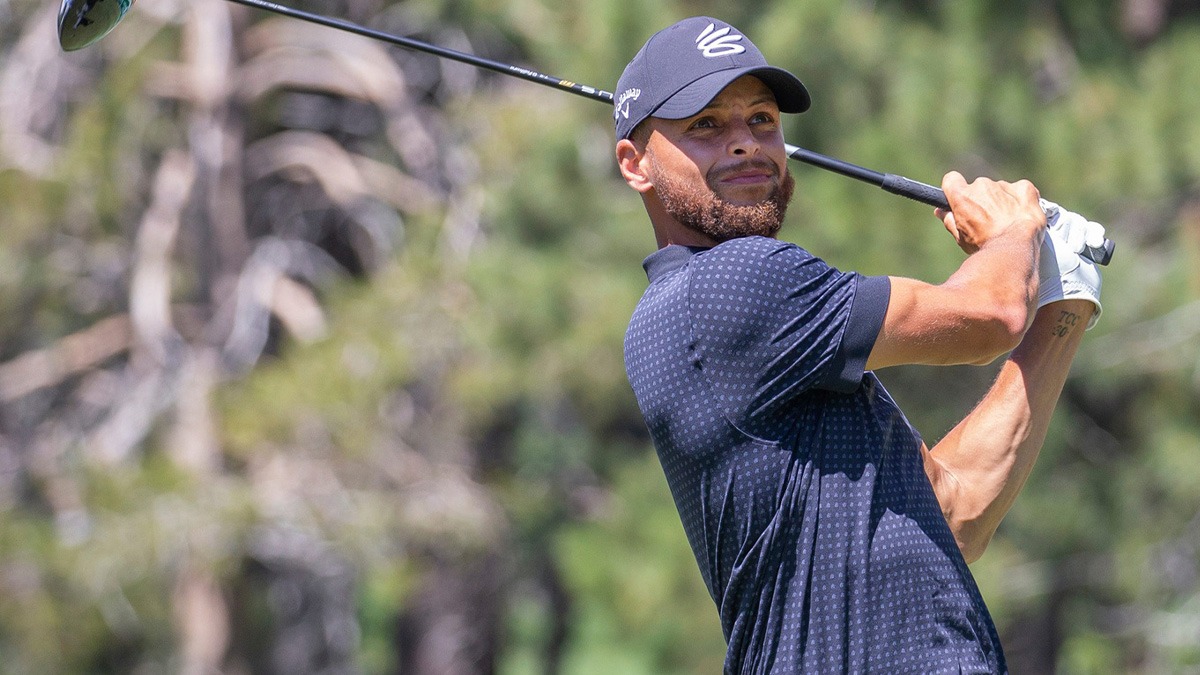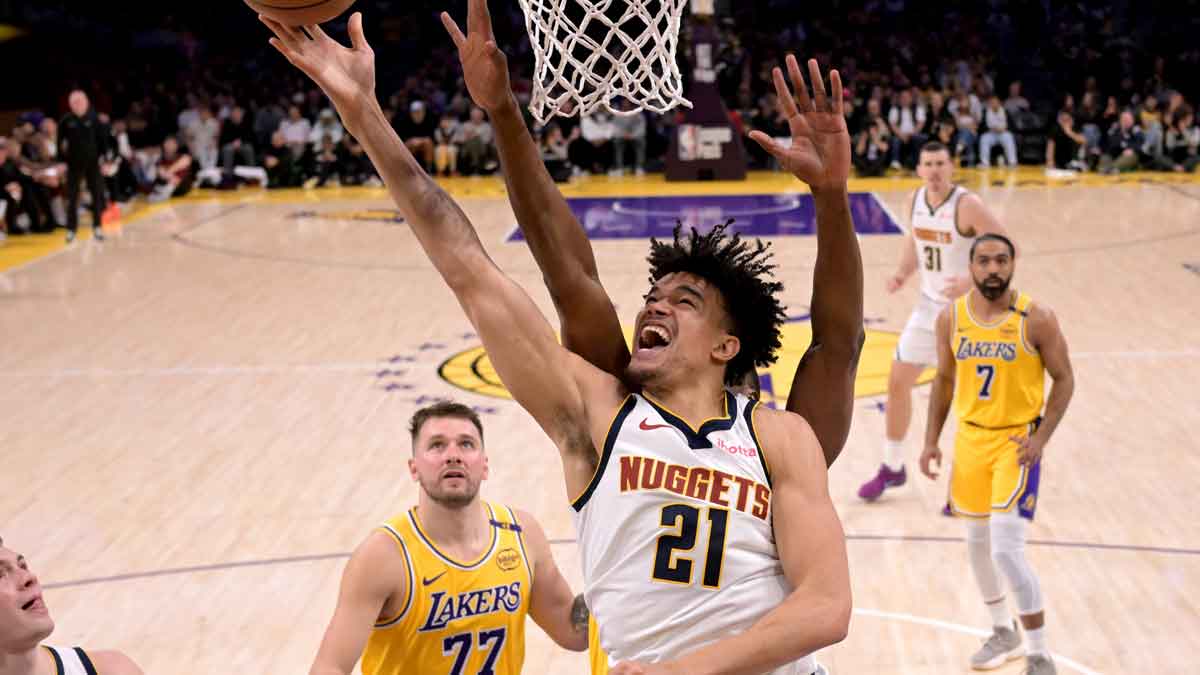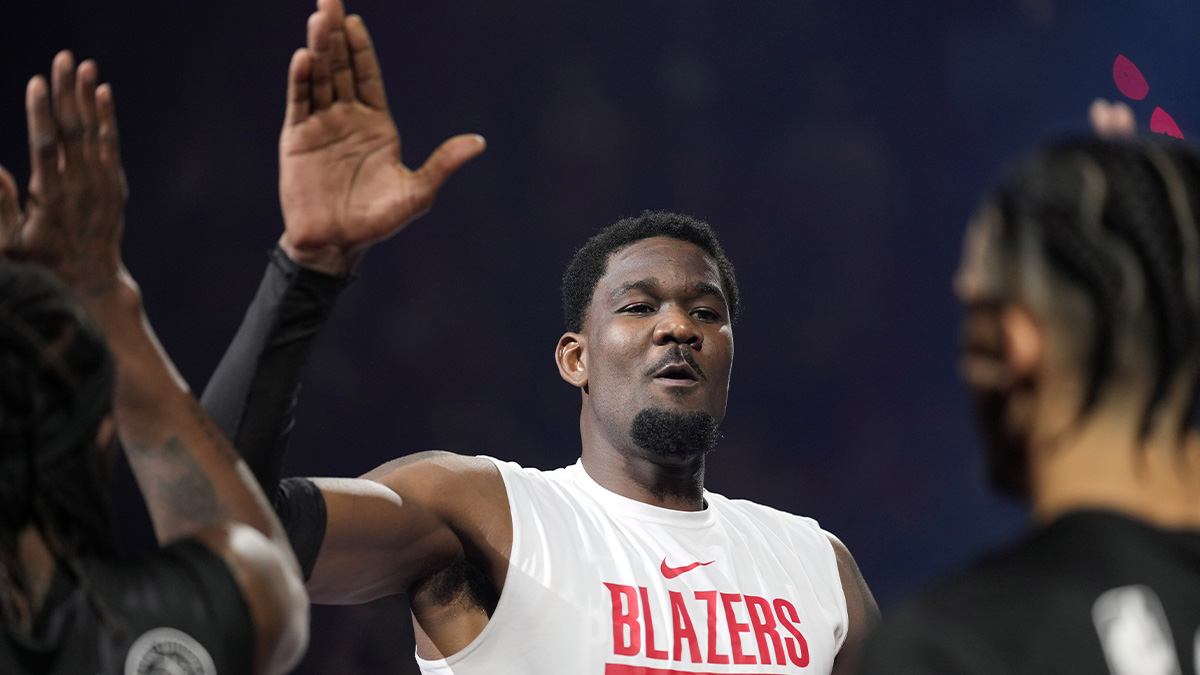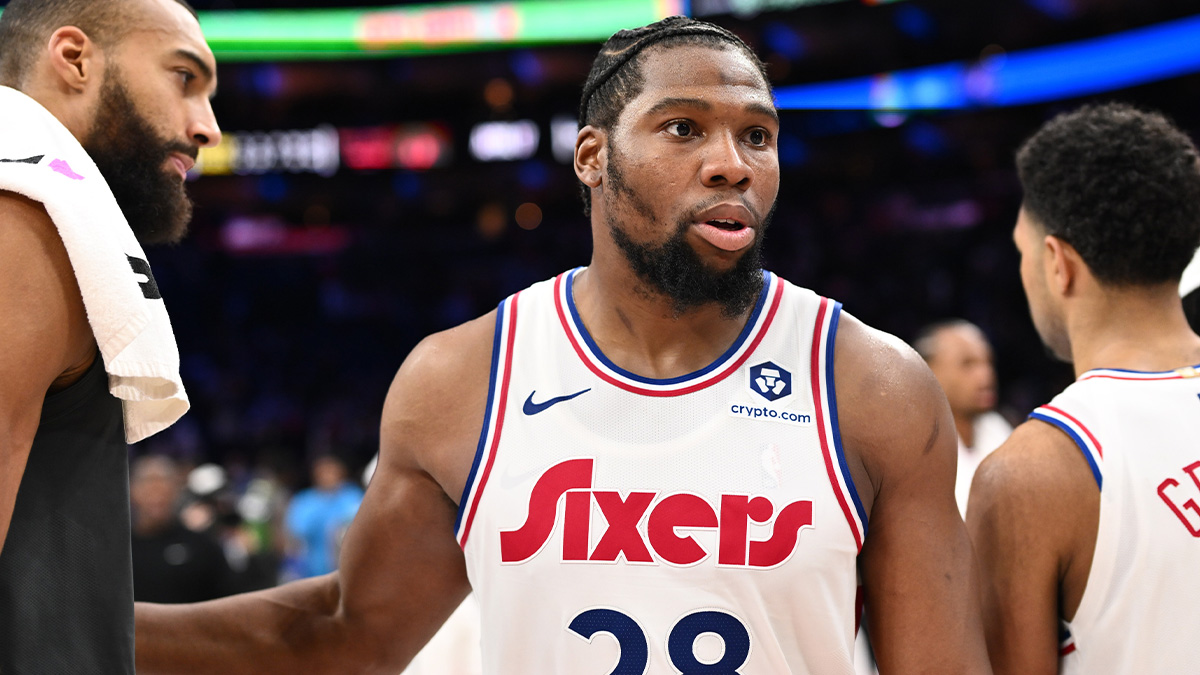Steph Curry is the greatest point guard in the game today (come at me, Russell Westbros)… but where does he rank in the all-time pantheon? Does Chef’s shooting mean more than Magic’s playmaking or Stockton’s gritty (and dirty) D? How much of his success is because he gets to play with Klay, Dray, and KD?
This article is an attempt to answer that question. But to figure out where Steph ranks among the 15 greatest point guards of all time, we have to figure out exactly who those are…. So I’m going to break down Steph’s case, then list his competition, and finally make a call.
A few notes on rules and methodology before we get into it:
1s vs. 2s: Particularly with older players, it’s not always super clear if someone’s a PG or an SG; for the purposes of this list, I’m trusting Basketball Reference to make those calls, which means guys like Hal Greer and James Harden aren’t considered, and opens the door for people to yell at me for putting a certain legend that’s almost always called a shooting guard in the top 5.
Longevity vs. Prime: They both matter. Goran Dragic’s best two seasons are better than certain players that made the list, but the rest of his career means Goran didn’t. At the same time, Mark Jackson played seemingly forever, but his best season wouldn’t be a top five season for anybody who cracked the top 15.
Stats vs. Wins: They also both matter. Derek Fisher has five championship rings; he’s not on this list. Fat Lever was a triple-double machine who won exactly one Conference Finals game in his career; he’s not on it either.
The “Best Guy on His Team” Test: A corollary to the above, winning is great, but it’s a lot easier to do when you’re playing for a stacked outfit. One of the toughest (and last) cuts I had to make was Maurice Cheeks, who was pretty good for a decently long time, but who was probably never even the second best guy on his team; it’s a lot easier to look great when Doc and Moses are sucking up all the defensive attention.
Why 16? That’s a random number: Yes, it is, but I’m a writer not a counter, and I miscounted when I made my initial list and since I’d already written #16’s entry when that happened, I figured we may as well let him hang around.
Ok, without further ado, let’s get started. First, Steph:

Steph Curry
Elevator Pitch: The greatest shooter in NBA history.
The Case For: 2x MVP. Best player on the 2015-2016 Warriors, who won a title and broke the all-time wins record. Probably (but not definitely) the best player on the 2017-2018 Warriors, who won another title and might be about to win a third. His 2016 season might the greatest offensive showing a point guard has ever had. Underrated passer and defender. His shooting is not only a lethal scoring threat, but forces defenses to bend five feet further than they’re designed to, opening up extra space and opportunities for his teammates, leading to season after season of record-breaking offense. That extra space is wholly unique to Steph; we’ve literally never seen anything like it. Clutch assassin.
The Case Against: A little bit injury prone. Can get bullied on defense by larger guards. His prime (so far) is only four or five seasons while lots of other guys on this list were dominant for a decade plus. His winning and statistics are both arguably inflated by the fact that he plays on a ludicrously stacked team that includes three other players who are Top 5 at their position in the current NBA, plus Andre Iguodala.
Verdict: We’ll come back to him. Onto the rest.

#16: Russell Westbrook
Elevator Pitch: The Tasmanian Devil after a P90X course, six Red Bulls, and a Ludovico Treatment on the dangers of not having triple doubles.
The Case For: A statistical superman who gets triple doubles at the highest rate in fifty years, becoming the first player since Oscar Robertson to average one for an entire season… and the first player since never to do it twice. Was the 2nd best player on a Finals team and several Conference Finals teams. Has led the league in both scoring (twice) and assists (once). Devastating offensive rebounder. Never gives up on offensive plays, and never seems to tire. Bigger, faster, and stronger than just about every other guard in the league. Nearly impossible to stay in front of one-on-one.
The Case Against: Poor defender who bites on every fake, gets plastered on every screen, sometimes loafs in transition, rarely makes second and third defensive rotations, and generally abandons defense entirely once a shot goes up to hunt rebounds (and rarely returns to his man if he doesn’t get the board). Somewhat turnover prone. Terrible three-point shooter who shoots more threes than most good three-point shooters, rendering him a mostly inefficient scorer in spite of how easy it is for him to score from 2. Rarely makes good decisions in crunch-time. Can’t seem to crack 50 wins as the best player on a team. Shoots worse, but more often, in the playoffs. Has only been in the league since ’09, so his longevity isn’t there yet (but likely will be).
Verdict: Makes this list on the back of his statistical brilliance, but has a lot to prove in terms of winning as the best guy on his team to climb any higher.

#15: Tony Parker
Elevator Pitch: Flop-happy Frenchman who raises his game in the playoffs.
The Case For: Unstoppable penetrator in his prime, owing to his incredibly quick first step, excellent handles, and unstoppable floater…and aided by the fact that he’s one of the 10 flop-happiest players ever (though still only the second floppiest player on his own team, thanks to Manu). Aforementioned floater is the deadliest in NBA history. Among star PGs, only Magic Johnson and Bob Cousy have started for more NBA Champions. Added a decent three-point shot halfway through his career to keep defenses honest. Led the Spurs in scoring during their last two championship wins, including his 2007 turn as Finals MVP (though this writer still thinks Duncan deserved the award). Won at least 50 games (or equivalent) every season he started (15 straight years). Strong clutch scoring chops. Only player on this list to win championships more than 10 years apart.
The Case Against: Bad defender who survived by playing on the same team as Tim Duncan/Bruce Bowen/Kawhi Leonard. Not as good of a passer as you’d think. Only guy on this list who doesn’t have at least one season in his career where he could credibly be considered as one of the two best point guards in the league. Could get shut down by strong enough defensive point guards (Kidd/Billups). Fails the “best guy on his own team” test and often only third behind Duncan and either Kawhi or Ginobili, depending on the season.
Verdict: Can’t keep him off in light of his win rate and Finals performances, but he benefitted tremendously from playing his entire prime with Duncan and Pop, and in a vacuum he probably isn’t as good several players who didn’t make this list, never mind the rest of the guys on it.

#14: Chris Paul
Elevator Pitch: The so-called “Point God” does everything you want a point guard to do at an elite level.
The Case For: Top level passer (4x NBA assists leader) and defender (9x All Defensive Team selection, 6x steals leader) who scores extremely efficiently and tends to bring out the best in his teammates on the court. Fiery competitor reminiscent of Bird, Jordan, and Kobe. Clutch assassin from midrange. Best-in-class handles. Was pretty cleanly the best point guard in the league for about four years between the apexes of Nash and Curry and has been roughly top 3 since about 2008. Better defender than all but four or five point guards in NBA history (most of whom are on this list).
The Case Against: Never seems to win as much as he should, and in fact has never been to the third round of the playoffs, despite playing with some fairly stacked Clippers teams. Whiny. Intense Jordan-light persona rubs some teammates the wrong way. For all his defensive gifts, can be overpowered by sufficiently physical guards (Westbrook especially). Stars in those annoying State Farm ads.
Verdict: The numbers are there, as is the skillset, but he’s the only player even in contention for this list that’s never seen the Conference Finals, and winning has to count for something.

#13: Jojo White
Elevator Pitch: Clutch, competitive, and consistent, Jojo could be the best guy on the court on any given night, especially in the playoffs.
The Case For: Outdueled Oscar Robertson (’74) and Paul Westphal (’76) both in the Finals, leading the Celtics to two titles in between the Russell/Bird eras. 1976 Finals MVP. Elite one-on-one player who could play both sides of the ball. Famously unselfish. Stats understate his value as he shared playmaking duties with John Havlicek and split scoring responsibilities with Hondo, Cowens, and Charlie Scott. Consistently raised his game in the playoffs.
The Case Against: Fails the “best player on his own team” test thanks to Cowens and Havlicek. Fails the “best point guard in the league” test thanks to Walt Frazier, Tiny Archibald, Dennis Johnson, and others. Never made an All-NBA First Team despite playing in the ABA-depleted 70s. Much shorter prime than a lot of the other guys on this list, with only seven especially strong seasons to his name.
Final Verdict: Absolutely a guy you want on your team, with no real skillset weaknesses and a championship mindset. He’d help you win titles, but he couldn’t lead you there on his own; something of a rich man’s Tony Parker in that regard (with the added benefit of playing quality defense).

#12: Gary Payton
Elevator Pitch: Arguably the greatest defensive point guard of all time, definitely the greatest trash-talking point guard of all time.
The Case For: Unbelievable defender (9x All-Defensive First Team), and one of only two point guards ever to win the Defensive Player of the Year Award. So good defensively people forget he was also a star on offense, with seven seasons over 20 PPG and eight seasons over 7 APG. Scored efficiently, too (.467 career FG%). Big enough to guard SGs. Sneaky good in the post on both ends. Usually (but not always, see below) clutch on both ends of the court. Strong longevity case with a 10-season prime and 17 season career. Remained clutch in his old age, making a few huge plays for Miami’s 2006 title team.
The Case Against: Only a borderline case for “best point guard in the league” at any season in his career, owing to his prime overlapping with Stockton and then Kidd. Laid an egg for LA in 2004, and helped cost them a title by getting his butt thoroughly kicked by Chauncey Billups. Only reached the Conference Finals twice as one of his team’s three best players. Pathologically trash-talking players better than he was tended to come back and bite him in the ass (see Jordan, Michael). Never added much of a three-point shot but really should have.
Verdict: On paper, it feels like he should be higher, but he ultimately didn’t win as much as he could have, and was only rarely definitely the best guy on his team (and when he was, they didn’t go anywhere).

#11: Tiny Archibald
Elevator Pitch: Unstoppable offensive superhero for the first chunk of his career, championship role player after that.
The Case For: Remains the only player in NBA history to lead the league in both scoring and assists in the same season, putting up a cartoonish 34 PPG and 11.4 APG while still somehow shooting 49%. Completely unstoppable when healthy. Changed his game to adapt after a brutal injury and ended up winning a title. Extremely efficient scorer for his entire career, only once shooting below 44% for a season.
The Case Against: Injury prone. Unremarkable, bordering on poor, defender in his heyday. Short prime. Only made the playoffs once before joining up with Larry Bird and Kevin McHale.
Final Verdict: Take away his title, and he’s a more efficient Russell Westbrook who doesn’t rebound… but on the other hand, his best season is a legitimate contender for “most impressive point guard season ever.” Depending on what you want to emphasize, you could probably put him as low as #15 or as high as #5. Let’s split the difference.

#10: Dennis Johnson
Elevator Pitch: All-time defensive talent who could score when he needed to and consistently reached the Finals (winning three).
The Case For: All-time great defender (9x All-Defense). Won three titles as a starter, with two different teams. Led an overmatched Sonics team to a win over defending champion Bullets despite a much weaker (on paper) roster, earning the 1979 Finals MVP in the process. Made the Finals six out of 10 years during his prime. No real skillset weaknesses.
The Case Against: Career stats don’t exactly jump off the page. Only the third, or more likely, fourth, best player on two of his three title teams. Benefitted tremendously from playing on deep teams with lots of other offensive weapons (Sikma/Williams/Brown in Seattle, Bird/McHale/Parish in Boston). Doesn’t easily pass the “best PG in the league” test any given season of his career (though he’s got a shot in ’79).
Final Verdict: Take away his miracle Finals run in 1979 and he drops a few spots; great utility player who could raise his game when it counted, but everyone ahead of him on this list is a legitimate long-term MVP candidate, and he just wasn’t.

#9: Jason Kidd
Elevator Pitch: Extremely versatile, durable point guard who did everything you’d ever want a point guard to do, just not all at once.
The Case For: Upper-tier defender (9x All Defensive Team, including 4 First Team selections). One of the greatest rebounding guards of all time. Great size made him impossible for most other PGs to guard and empowered him to switch between three positions defensively. Led the league in assists five times. Dragged two pretty iffy Nets teams to the NBA Finals. Eventually added a three-point shot and won a title with Dallas; firmly putting to rest those ‘there’s no J in Jason jabs.' Definitely the best PG in the league for an extended stretch between Stockton and Nash. Incredibly long career (18 years) and prime (14).
The Case Against: Couldn’t shoot to save his life for most of his career, and ended up shooting a pretty awful career 40%. Didn’t add a three-point shot until his athleticism was gone. Never truly a serious scoring threat, despite his size. By the time he finally won a title, he was at best the team’s third or fourth best player, and you could make a case for fifth.
Final Verdict: His lack of shooting (and therefore scoring) is a giant black mark, and he left a lot of wins on the table by not learning how to stretch the floor until his driving and defense had both slipped. That said, he did everything else at an MVP level during his very long prime, and his six year run as the no-question best PG in the world is hard to top.

#8: Steve Nash
Elevator Pitch: Has a non-ridiculous case as the greatest offensive PG of all time thanks to his impossibly efficient scoring and ability to almost guarantee career years from his supporting cast. Just don’t ask about his defense.
The Case For: Statistically one of the two most accurate all-around shooters (along with Curry) in basketball history, averaging 49/43/90 over an 18-season career. For a nine season stretch (‘02-’10), he guaranteed you a top 2 offense no matter who you put around him, a claim no other PG can make (though Magic gets close and Curry might top it if he plays long enough). Great at drawing charges. 2x MVP and it probably should have been 3. Deadly clutch shooter and playmaker. Great longevity and prime, and was cleanly the best PG in the league from ’05 till whenever you think Chris Paul took over (probably ’11 or ’12). Basically unguardable once the hand-check rule was changed in 2004, making him more-or-less the perfect offensive PG; he was simultaneously the best shooter (51/45/91 shooting splits) and passer in the league for a six year run.
The Case Against: Very poor defender. Only player in the top 10 who never made the Finals. Those are really the only knocks on him, but they’re pretty big knocks.
Final Verdict: Nash’s Finals absence is probably his biggest black mark, but it can be somewhat excused by the bizarre 2007 playoffs, during which he was eliminated by the Spurs in a series characterized by black-cat-breaking-a-mirror-under-a-ladder level bad luck. A bloody nose that kept him out of Game 1’s crucial closing minutes, a crooked (since imprisoned) referee who never worked another game after a very one-sided Game 3, and a ludicrous Game 5 suspension of his best teammate (Amare Stoudemire) and his best teammate’s backup (Boris Diaw) after a cheap shot from the opposing team. There’s a fair case Nash should have won that series—and an even stronger one that if he did, he’d have cruised past an iffy Jazz team and one-man Cleveland squad to an NBA championship. He had several other potential title runs derailed by injuries to key teammates (’05, ’06) or fluky once-in-a-lifetime plays (’10, arguably ‘08). Ultimately, though, he still didn’t make a Finals, and his defense still stunk, so this is as far as 2x MVP gets.

#7 Bob Cousy
Elevator Pitch: The league’s first incredible point guard who innovated the way basketball was played… and, oh yeah, won six rings in seven years.
The Case For: Unquestionably the best PG of the 50s. 1957 MVP. 12x All NBA selection. Basically defined the position. Won six titles, including five straight; the only other point guard with as many rings as Cousy is his backup, K.C. Jones (who hung around and won a few more after Cousy retired). Led the league in assists for eight straight years (only one other PG has ever led the league in assist eight times period, never mind in a row). The original star of the greatest sports dynasty of all time.
The Case Against: Played on an incredibly stacked team with the greatest winner in sports history (Bill Russell) against a mostly white league. Played with more Hall of Famers on his team per season than most guards play with in their careers. His field goal percentage—while nowhere near as bad as it looks relative to his modern peers—was unimpressive. Led the league in missed field goals three straight years, but never led in makes. Unremarkable defender somewhat bailed out by playing alongside Russell and company.
Final Verdict: It’s extremely hard to compare Cousy to modern guards (even moreso than it is with guys like Oscar and West) because of how different the league was in his prime. That said, his numbers are elite for his era, and it’s pretty hard to argue with 12 straight All-NBA teams and six titles in seven years.

#6: Walt Frazier
Elevator Pitch: What if Gary Payton was 20% better at everything?
The Case For: No skillset weaknesses; there’s a strong case that in the early 70s he was the best defensive point guard in the league, and a top three offensive point guard. Big and strong for a guard, but still fast and savvy enough to guard smaller players. Won two titles against the Wilt/West Lakers, including a monstrous 36/7/19 Game 7 of the 1970 Finals, managing to shoot 70% for the game against the smothering defense of Jerry West. 7x All Defensive Team and 6x All-NBA Team member. Made six straight Conference Finals (with three Finals trips). Arguably the greatest defensive guard of all-time, yet still largely unstoppable offensively (shooting 49% for his career while averaging 18.9 PPG).
The Case Against: Unremarkable career length, short prime. Dubious case for “best player on his own team” thanks to Willis Reed. Generally played on extremely stacked teams featuring Hall of Famers like Reed, Dave DeBusschere, Earl Monroe, Jerry Lucas, and Bill Bradley. Owing partly to that extremely deep cast, his individual numbers aren’t as impressive as some of the other guys ahead of him.
Final Verdict: I originally had him all the way up at #4, but his prime just isn’t long enough, and he had a lot more help than the next two guys on this list. I’d still take Walt Frazier’s best night over either of theirs, but I’d take their careers over his.

#5: Isiah Thomas
Elevator Pitch: The only guy with a winning playoff record against Bird, Magic, and Jordan combined.
The Case For: Unguardable scorer and passer who once averaged 21.2 and 13.9 in the same season while still shooting over 45%. Good and aggressive defensive player. Dirty (in the good way). Started in three straight NBA Finals, winning two of them (including one Finals MVP). Deadly playoff killing machine who once scored 25 points in the third quarter of a Finals game while playing on one leg. Owner of the greatest non-John Stockton passing season of all time.
The Case Against: Too small to guard the best rival point guards. Relatively short career (though very long peak). Won his titles after the Lakers and Celtics got old but before the Bulls became elite; when those teams were at their apex, they kicked his butt. Played on a deep, stacked team with loads of other stars. Dirty (in the bad way).
Final Verdict: At his best, there may not have been anybody better… but he didn’t win until he got an awful lot of help and the really, really good teams aged out of his way. His best year is better than #4’s, but he doesn’t have the longevity to crack the top four.

#4: John Stockton
Elevator Pitch: Statistically the greatest passer of all time, and it isn’t close.
The Case For: Holds basically every meaningful passing record, most of them by a mile. Led the league in assists nine straight seasons, recorded 15,806 career assists (that’s 3,751 more than second place), and owns seven of the only nine 1,000+ assist seasons in NBA history (including the top four). Also the all-time leader in steals, by a similarly insurmountable margin. Good, efficient shooter and gritty, physical defender who compensated for his size by fighting dirty (in both the good and bad ways). Ludicrous longevity with a 19-season career (he was good all 19) and a solid 13- or 14-season peak.
The Case Against: Only arguably the best player on his own team thanks to Karl Malone. Very dirty player, and still couldn’t stop certain guards due to his small size. Couldn’t really take over a game as a scorer (his career high is only 34 points, which other guys on this list have averaged). His peak arguably isn’t as high as others. Never won a title (everyone above him did). Isiah Thomas was definitely better than he was if you took both guys on their best day.
Final Verdict: He edges by Thomas on the strength of a much longer career and ludicrous record-setting, but I can’t in good conscience put him higher than fourth given his lack of rings and inability to truly dominate the game as either a scorer or defender.

#3: Oscar Robertson
Elevator Pitch: What if Russell Westbrook played defense and didn’t take dumb shots?
The Case For: Easily one of the two best guards of the 60s. Averaged a triple double for a season, and more impressively, averaged a triple double for a five-year stretch. Scored at a prodigious rate, yet efficiently with six seasons of over 30 PPG on over 47% shooting. His size made him almost unguardable for other guards in his era and empowered him to dominate the boards. Best passer of his era, leading the league in assists seven times. 1964 MVP. Won a title as the second best player on one of the league’s all time great teams with the 1971 Bucks. Good-not-great defender. Long prime.
The Case Against: His rebounding totals are somewhat inflated by both pace of play and his comparative size advantage for his era (and sharply declined after his first few incredible seasons). Didn’t have a ton of range and often relied on his size and strength to get him to the rim. Did not win at the rate you’d expect, making it out of the first round only five times in his career (and only twice while the best player on his team). His only true postseason success came on Kareem’s coattails. Not always well-liked by his teammates. Missed the playoffs three straight years in the middle of his prime.
Final Verdict: His numbers are the best of anybody on this list, but they didn’t consistently translate to winning. There’s a fair case his skillset is better than either of the two guys ahead of him, but he wasn’t able to leverage that to postseason success. The two guys ahead of him both played in over four times as many Finals as he did, and both also did so as the best player on their teams (which Oscar never managed).

#2: Magic Johnson
Elevator Pitch: The greatest showman, and one of the greatest winners, in basketball history.
The Case For: 3x MVP, 3x Finals MVP, 10x All NBA, 12x All-Star, 4x league leader in assists. Arguably the greatest passer in basketball history. Nearly unguardable thanks to his combination of size, speed, and skill. Beloved by teammates, who generally played the best ball of their lives while on the court with him. Efficient scorer and excellent rebounder. Long prime. 5x NBA Champion, second only to Cousy on this list. 9x NBA finalist, tied with #1 for first by that metric. Captain of the greatest sustained stretch of team offense the league has ever seen. Good at generating steals, especially in his younger days.
The Case Against: Outside of those steals, largely a poor defender. Never a great jump shooter. Won a lot, but did so while playing with a 6x MVP (Kareem), another member of the NBA’s top 50 (James Worthy), a 2x Defensive Player of the Year (Michael Cooper), a declining-but-still-good former MVP (Bob McAdoo), and several other All-Stars (Nixon, Wilkes, Green). Probably only the best player in one of his five Finals wins, despite MVP counts to the contrary (Kareem was the key in the two wins over Philly, Magic’s famous Game 6 nonwithstanding). Career averages slightly inflated by a pre-decline retirement. Short-ish career (though it’s basically all prime).
Final Verdict: He’s one of the three or four most potent offensive forces in basketball history and one of the sport’s greatest winners, but his skillset isn’t quite as complete as the one guy ahead of him, and his supporting cast is easily the strongest of anyone’s on this list. It’s likely many or most of these guys could/would have put up better assist numbers (and won more titles) if they got to play with Kareem and the gang.

#1: Jerry West
Elevator Pitch: The logo. Nuff said.
The Case For: Only guy on this list who has a legitimate claim to being both the greatest offensive point guard ever and the greatest defensive point guard ever. No skillset weaknesses. Top-shelf shooter. So clutch it’s literally his nickname. 9x NBA Finalist who leads the league all-time in Finals points. Arguably the best player of arguably the team’s best ever team (1972 Lakers). Led the league in both scoring and assists at different points in his career. Only kept to a single title by the dominant Russell Celtics dynasty (which featured twelve Hall of Famers beside Russell during that era). Played perhaps the greatest individual game in NBA Finals history with a 42/13/12 triple double (on 48% shooting) in a crushing Game 7 loss to Russell’s Celtics in 1969. Remains the only player from a losing Finals team to win the MVP, which he did in that same 1969 Finals, with series averages of 37.9/4.7/7.4 on 49% shooting.
The Case Against: Generally considered a shooting guard. Won only one title, no matter how stacked the odds were against him. Longevity can’t quite touch the Stocktons and Kidds of the world. Lost to beatable Knicks teams in 1970 and 1971.
Final Verdict: Look, I don’t think of Jerry West as a PG, but that’s where he’s listed, so that’s where we have to consider him. By pure skillset, he’s better than everyone else, and even his worst season was All-Star worthy. The only real case against him is his lack of rings relative to Magic, but if you gave Jerry a center like Kareem for his entire prime in a Bill Rusell-less league, I think it’s safe to say he’d crank out a few extra titles. Ultimately, he’s a better shooter, scorer, and lightyears better defender than Magic, with a longer career/prime. Magic’s assist numbers are better, but Jerry didn’t get an elite center to pass to until the last third of his career and never had a team as top to bottom stacked as Magic’s, so it’s fair to question if Magic was actually a better passer, or just a more entertaining one.
End of the day, Jerry’s better at more things, by a wider margin, and it feels wrong to give Magic the top spot over him just by dint of playing on a better team in a post-Russell world.
Ok, so where does Steph rank?

The thing that works against Steph right now is that he’s only halfway through his career. His peak hangs with anyone; nobody on this list can say they definitely have a better season under their belt than his 2016 (never mind the ending). But… the longevity isn’t there yet.
He’s arguably the best scorer on the list (though I might take Jerry with a gun to my head). He’s in the middle of the pack as a passer, but on the other hand nobody else creates the extra space with their shooting that he does, which is probably more valuable. He’s a good-not-great defender, but of the guys who can compete with him offensively only Jerry West is better by a particularly wide margin.
He does have pretty excellent help with Draymond/Klay/Durant, but on the other hand he won before KD got there and it’s fair to question whether Klay and Dray would be as good as they are without Steph opening up the floor. He at least has less help than Cousy, Magic, and late-career West.
He’s got two rings, which outranks everyone but Cousy, Magic, Parker, and DJ (and ties Frazier, White, and Thomas).
If Curry retired today, he probably knocks Frazier out of the #5 spot, but he just doesn’t have the body of work the top four do.
Give him four of five more years at an elite level, though? Let’s say one more MVP, two more rings, and a couple more 50/40/90 seasons (reasonable, if slightly optimistic, but by no means his ceiling)?
That has him jostling with Magic for that #2 spot, and I’d probably give the edge to Curry there, if only by an inch. KD is great, but he’s not Kareem, and the Warriors have never been quite as deep as those Laker teams.
To pass Jerry, though, given how much better Jerry was defensively, Curry probably has to add three or four more rings and/or keep his prime going another six or seven years. Jerry was arguably the best guard on the planet for 13 years. Curry’s in about year four of that conversation. Titles and MVPs are awesome, but tenure matters too, so he’s got to keep playing at that tippy top level for a while yet to pass The Logo.
So…

Final, Final Verdict:
Right now Steph Curry is the fifth best point guard of all time. If he stays healthy, he’s a near-mortal lock to end up #3. If he wins a few more rings, #2. If he ends up having a solid 11-12 year prime, #1 is definitely in play… but he’s got some work to do to get there.
Nick Feldman is the Editor in Chief of Rep the Squad. Rep the Squad is the world's leading jersey subscription service, empowering fans to elevate their fandom by repping as many of their favorite team's jerseys as they want.

